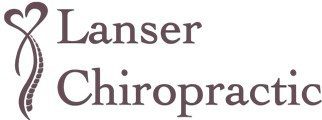 Ouch! Being pinched hurts, but to pinch a nerve? Ugh! That must feel like severe, intense pain – and it often does. “Pinched” nerves could happen anywhere in your spine; they can affect nerves that go to your arms, fingers, wrist, neck, back, shoulder, head, legs, muscles and internal organs, and can affect your general health, posture, energy level, resistance to disease – even your emotional health. Although the nerves are not technically “pinched”, the descriptive word is most commonly associated with the nerve impingement and irritation. As the nerve remains trapped the nerve sends signal sensations. These sensations range from intense heat or cold to pins and needles. Pins and needles most often occur at the end of the affected root, for example the hands and feet.
Ouch! Being pinched hurts, but to pinch a nerve? Ugh! That must feel like severe, intense pain – and it often does. “Pinched” nerves could happen anywhere in your spine; they can affect nerves that go to your arms, fingers, wrist, neck, back, shoulder, head, legs, muscles and internal organs, and can affect your general health, posture, energy level, resistance to disease – even your emotional health. Although the nerves are not technically “pinched”, the descriptive word is most commonly associated with the nerve impingement and irritation. As the nerve remains trapped the nerve sends signal sensations. These sensations range from intense heat or cold to pins and needles. Pins and needles most often occur at the end of the affected root, for example the hands and feet.
Quite simply “pinched” nerves can make your life miserable.
Miles of Nerves
There are billions of nerve fibers in your body, often arranged in bundles called nerves. Many billions of them travel inside the spinal column as part of the spinal cord and exit through openings between the vertebrae. After leaving the spinal column, the nerves separate into smaller and smaller bundles and travel to every nook and cranny in your body.
Without nerves, you could not see, hear, touch, taste or smell. You also would not be able to feel hot, cold, pain or pleasure. Your body would be paralyzed and simply not able to respond to any of your commands, and you’d be a prisoner within yourself.
Nerves also regulate your breathing, internal organ function, heartbeat, digestion, excretion, blood supply to different organs and blood pressure. Without healthy nerves, your body would be quite useless.
How Do Pinched Nerves Occur?
When the nerves come down from the brain, they travel through a bony canal formed by vertebrae. If the vertebrae are misaligned slightly, they may cause the nerves to be irritated, compressed or stretched. Nerves also send more than electrical impulses; it is now known that chemical nutrients, which are necessary for muscle health, travel over the nerves.
What can cause nerve pinching or impingement? A fall or an accident, even a very mild one that happened years ago, may be enough to mis-align your spine. Some common causes are also related to repetitive actions, for instance unnatural sleeping positions, bad posture, fatigue, a difficult birth, emotional stress, poor nutrition or a combination of stresses. Left over time the nerves deliver weaker and weaker signal to the areas that are “pinched” leaving the health of the area or or organ in a degenerated or even failing state.
The State of Dis-ease
When the nerves are compressed, their impulses may be altered and this affects the entire body. Dis-ease, a general weakening of your body, may result. Dis-ease sets the stage for diseases of all kinds. Chiropractors have observed that physical and emotional conditions of many kinds have been related to improper functioning of the nervous system. Some of these include ulcers, constipation, diarrhea, lung conditions such as asthma, fevers, headaches, seizures, allergies, bed-wetting, colds, hearing, vision and a host of other problems. When the spinal column is misaligned, the entire skeletal system is thrown off balance in its efforts to adapt and compensate for the incorrect alignment.
We Can Help!
Most people with pinched nerves are not in pain. Less than 10% of the nerve system can feel pain, so you don’t always know if there’s a problem.
Our team are experts and are ready to help you or a loved ones get to the root of your health challenges. Do Not Delay – Call Today!
For Your Health,
Dr. Wendy Lanser, DC
